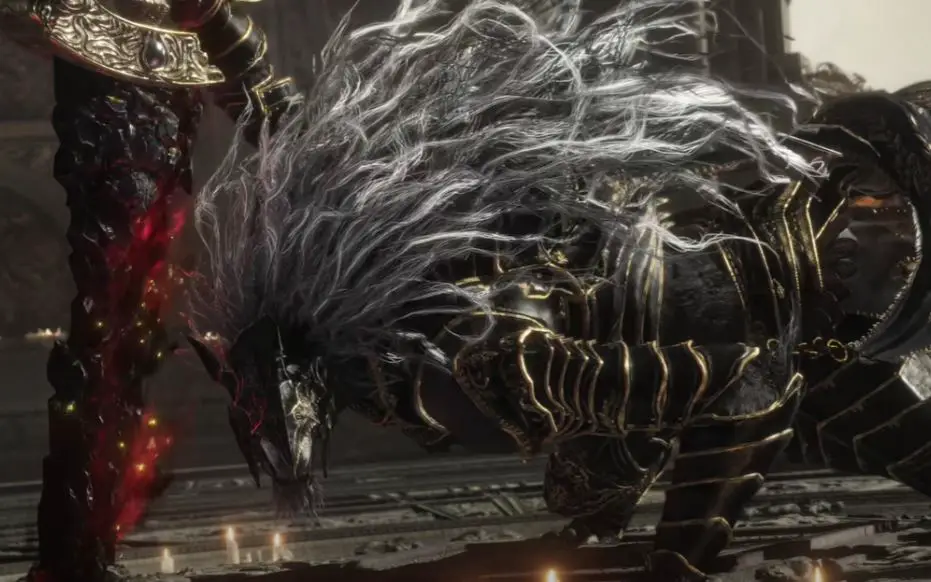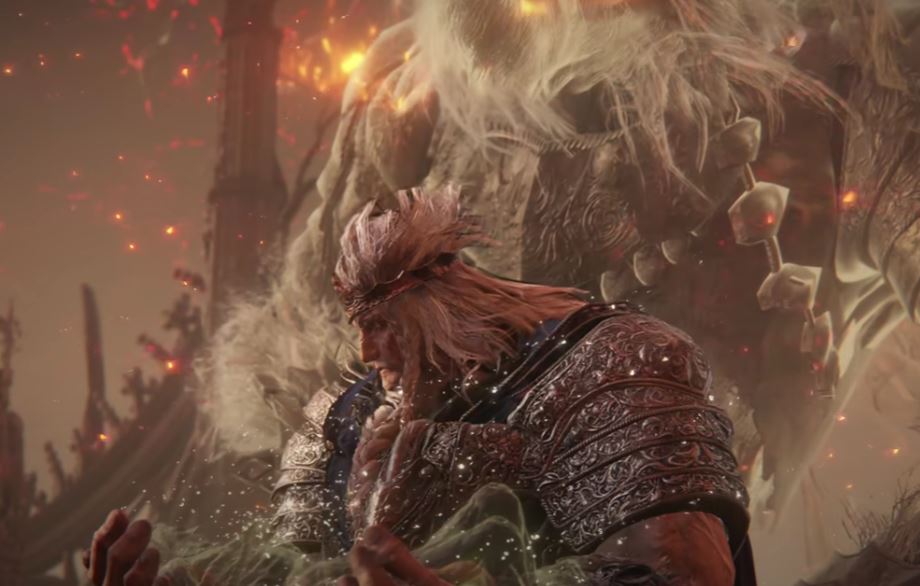After well over 100 hours in the game, and currently entering the main course of my second playthrough, there are very few things I can say about Elden Ring that you have not seen or heard from the myriad of glowing reviews that make it out as one of the best video games ever made. I believe it deserves all of that acclaim and then some. Elden Ring blew my expectations out of the water.
So yeah, you have probably heard every bit of effusive praise about the vast majority of the game’s immense content. As you can tell by the headline, I am here to talk about the last handful of those hours. Those moments where this masterpiece’s biggest flaws appear, and they appear with the content From Software is best known for: the boss fights.
Spoiler warning for any who want to avoid them.

Elden Ring’s endgame bosses easily live up to the “Prepare to Die” reputation that Dark Souls made the company famous for. Are they the most difficult? It’s hard for me to definitely say that when something like Sekiro’s Sword Saint Isshin exists. Difficulty, however, is not really my point. Isshin is a monster of a boss fight that took me somewhere around 6 or 7 hours across two days before I could beat it. I still had immense fun through every frustrating death.
Elden Ring’s big problem with its endgame boss fights is not the difficulty, but the reason those fights are difficult. They cross the line from hard but fair to simply overwhelming and cheap. They are designed to punish the vast majority of play styles and funnel players towards a more limited approach. To sum up how these fights go: roll, roll, roll, maybe block once or twice, get one or two attacks in, go back to rolling.
These fights are simply too much, and too limiting in their tactics. They involve bosses who never stop moving and never stop attacking. The natural exchange between offense and defense devolves into pure defense, as the player’s focus is almost entirely spent on just avoiding boss attacks and hoping to find a moment or two to poke them or cast a spell.
In the same way that Elden Ring is a culmination of every positive, industry-influencing trait From Software has been responsible for since Demon’s Souls first released, it is also the culmination of a complaint that arguably began back in Dark Souls’s first DLC.
Fights like Artorias and Manus are incredible to this day, but the praise for them has largely led From Soft down this “roll and poke” boss fight design. They were highly lauded for their demanding, but fair, difficulty, and so when Dark Souls 3 rolled around, there were even more fights in their ilk, where boss fights involve long enemy combos and limited openings for the player to counter them. This is a common complaint with Dark Souls 3, that the game is heavily biased towards dexterity builds and players spend most fights rolling and poking.
When the Ringed City DLC culminated in the Slave Knight Gael fight, which again was heavily and deservedly praised and is considered by many to be the hardest fight in the series, this approach reached its peak. Gael’s combos can seemingly last forever and his openings seemed to be the most limited yet. They just kept building on the concept.
When the Elden Ring Closed Network Test came out, people immediately compared the Margit fight to Gael. So did many journalists writing previews involving the Godrick fight. It is an apt comparison. I think most boss fights in Elden Ring take care not to expand too far past their challenge. Some are tougher, many are easier, but the challenge never feels like I was punished too much for not playing a certain way.
This approach flies out the window in the endgame.
The worst offender, in my opinion, is the Maliketh boss fight. To say this fight feels like sheer nonsense is an understatement. This giant wolf knight attacks with blinding speed and without ceasing. He rarely stops rolling and flying through the air like a pinball. Even your limited openings can immediately be punished if he chooses to launch certain new combos. It is a level of overwhelming beyond anything I had ever experienced in a From Software game, and took all the enjoyment out of the difficulty. You spend the entire battle rolling and poking, with no real offensive initiative.
Godfrey, and his second form Hoarah Loux, pose largely the same problem. While he does not move as fast as Maliketh, his combos are relentless. There are brief moments to strike once or twice, then you are back to rolling. Sometimes even those openings can punish you, since the AI can decide that it wants to pull out a cheap move that smacks you for daring to attack. Or the AI will decide to spam Godfrey’s arena wide shockwave stomps over and over, so you do not even get that brief opening.
You roll, roll, roll, hope that your efforts to poke are not punished before rolling again.

His stomps are an example of something else Elden Ring’s endgame goes too far with, which is giving bosses one completely cheap mechanic that arguably ruins what otherwise might be fun fights. Maliketh has the blood attacks that drain your health. Godfrey and Radagon have stomps. The Elden Beast has a 20-second long orb attack that surrounds the player seemingly unavoidably, all while it follows up with other dangerous moves. These are all difficult bosses without this additional bit of cheapness, but these are the kinds of additional obstacles pushing the fight past fairness and fun.
The most unfortunate example comes with Malenia, an optional boss that is already being declared by many as the toughest boss From Software has ever made. Interestingly enough, she has a far less overwhelming flow to her boss fight than most of the bosses in the endgame. Her combos give you clear openings and she can be staggered by your attacks, so there is a nice flow between aggression and defense. It is tough, but doable.
Then you notice that she heals with each hit on you. And not just with attacks that damage the player, but even the ones that you block. Okay, fine. This makes things tougher but you can still identify her attacks, avoid them, deal your own, with some practice you can overcome it. Then she pulls out her flurry move.
Malenia’s flurry move is not just the cheapest move in the game, it is the cheapest thing I have ever seen in a From Software game. It makes every poison swamp and multi-stage boss feel like heaven. Malenia’s flurry is practically unavoidable if you are anywhere near her when it begins. Which, most likely, you will be. She will cover the length of the entire level in an instant and there are too many slashes within the attack to reliable dodge. If it catches you, it will kill you. It is an instant kill move she can pull out at any point.
Even now, weeks after Elden Ring’s release, and with some reliable strategies about how to avoid the move, many fans admit it largely comes down to a bit of luck. So you not only have the life steal move, you have this flurry move. One is already too cheap. Both together makes what should be one of the best fights From Software ever made into possibly the most unfair.
Oh, then she gets a second phase that adds the most damaging status ailment in the game to these attacks, along with new attacks.
The problem with the way all of these fights operate is that they force certain optimal player builds, which limits the fun of trying new ones. This was a problem many had with Dark Souls 3. The game heavily discouraged any build that did not focus on dexterity and katanas. Elden Ring does the same thing. If you want to do a big weapon, heavy armor build, these endgame bosses will probably make you pay for it. The average player is almost required to focus on either sorcery or dex-heavy bleed builds.
How many people will put 80-90 hours into a build, realize how ill-equipped it is to handle some of these bosses, and be too frustrated to finish the game? Probably too many, and that is a real shame.
Now, did this come anywhere near ruining Elden Ring for me? Not at all. You know what you get into with From Software. I still had fun from beginning to end. Even if these endgame bosses had been so unfun that I hated them it would not come close to ruining the hundred-plus hours preceding them. Elden Ring is a masterpiece.
But if From Software wanted to maybe take a step back, I wouldn’t complain.
Images Courtesy of Bandai Namco
Have strong thoughts about this piece you need to share? Or maybe there’s something else on your mind you’re wanting to talk about with fellow Fandomentals? Head on over to our Community server to join in the conversation!

